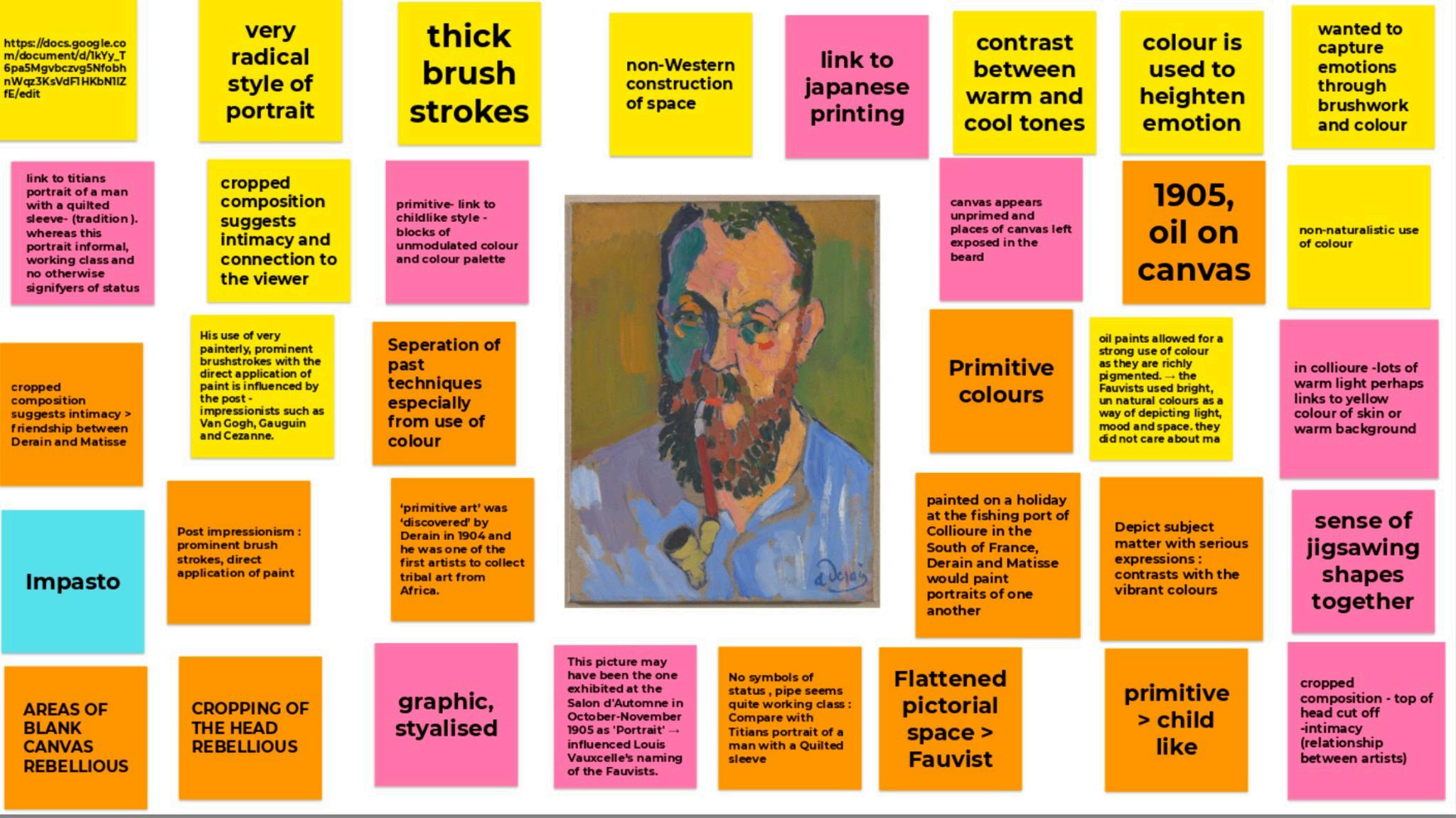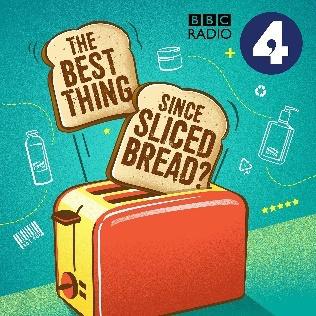





The human brain doesn’t learn things independently very well.
Cramming ideas into our memory without relating it to what we already know doesn’t work well.
Your brain learns through connections. Stories, journeys, songs, and mnemonics help with memory.
The brain does not ‘fill up’, instead it expands the more you learn.
Latin Top Tip:-
Mrs Goodall learns genitive endings in Latin to the tune of ‘Jingle Bells’:-
-ae-i-is (genitive singular endings)
-ae-i-is
-arum-orum-um (genitive plural endings)
-ae-i-is
-ae-i-is
-arum-orum-um!


Or learn a Latin verb to the tune of ‘If you’re happy and you know it ’
portavi portavisti portavit
CLAP CLAP portavi portavisti portavit
CLAP CLAP portavimus, portavistis portavimus, portavistis portav-e-e-e-e-erunt
CLAP CLAP



English Top Tip
‘Don’t start by revising the thing you know already (your comfort blanket!), start with the poem, the scene, the grammar point that you DON’T know.’
Mrs Eastwood
Ideas enter through our senses and are temporarily stored in our working memory. But we need them to be stored in our long-term memory because… Your working memory can only hold 5-9 concepts at a time, maximum. So, there are ways to help remember concepts better:
Link ideas to each other. You can create acronyms and acrostics to help with this!
Tell yourself a story to memorise facts.
Use dual coding, especially in notes to remember them better. Build a memory palace to help remember chunks of information.
Make summary sheets! These help you pull out key bits of information and remember them in ‘chunks’
Regular retrieval practice through blurting and testing helps the information get into your long-term memory and helps you find out what has stuck!

Music Top Tip:-
With listening questions, focus on one or two elements of the question at a time as the track will be played multiple times. This reduces the risk of overload.’
Mr Head
PRE Top Tip:-
‘Paced and constant revision, give yourself a task a day.’
Miss Eldekin & Miss Johnson




Modern Foreign Languages Top Tip:-
‘It’s better to revise languages a little bit every day in 10–14minute chunks - 5 minutes a day keeps the bad grade away! Little & often.’
Miss Adam
Latin Top Tip:-
‘Write out key recall prompts in the exam such as all the verb endings so that there is less cognitive load when tackling translation passages in an exam.’
Mrs Goodall


ACTIVE REVISION METHODS WORK! Here are some to try..
(‘blurting’)
Before you start revising a topic ‘Blurt’ everything you know about i
This is called retrieval practice, where you are activating prior knowledge. It reminds you of what you know and what you need to revise.
On a whiteboard or big piece of paper, blurt out everything you can think of for the specific topic you are revising (without notes) It is great to use mind maps here
Next, go over your notes and compare them to what you’ve just blurted
Anything you have forgotten to write, you need to revise more.
Repeat!
Or:-
Write down everything you know about your topic (on a mind map or as a linear list).
Go over your notes on that topic and fill the gaps. Do an exam style question to see what has stuck.

English Top Tip:-
‘Try blurting the context of a particular text - how much can you remember?’
Dr. Klimt
Remember:- All topic tests are a form of retrieval practice and are helping you to retain that information.
Yes, teachers test because they care!
This is a simple and effective method that helps you remember a series of words by creating a story Giving the information you are revising more meaning helps you to encode it better, so you remember it.
Miss Scarlett used this method to revise A ‘level Chemistry content:‘Here’s my story. See if you can fill in the blank box with your own story.’
Information to remember:
The number of moles equals the mass (in grams) divided by the Mr of the molecule
Repeat the steps, keeping the controlled variable the same
To identify sodium ions, carry out a flame test The presence of Na+ will turn the flame yellow
Respiration is a chemical reaction where energy is produced from glucose and O2.

Story: Image (optional):
The moles wanted equal rights They met in masses to overrule Mr Molecule
I always have the same music on repeat so I can control what song I want
The best yellow fruits are bananas because they have lots of sodium in them!
I saw the band Glucose at the O2 arena. The crowd made the energy so good!






This term just means adding images to your written work e.g. a mind map.
Add drawings when you are taking notes to represent the facts and ideas
Don’t overcomplicate it, keep it simple!
Here is an example:-


History of Art Top Tip:-
‘Use Google Jamboard to create excellent revision resources, see the Fauvist example below.’ Miss Farmer


These can improve your memory by linking different pieces of information together, helping you to recall the content better.
1. MAKE THEM BIG!
2. Do them in groups,
3. With essay structures,
You can tape together A4 sheets and pin them to a wall it’s fun to collaborate and bounce ideas off of each other. make each branch the plan for a paragraph.

Music Top Tip:-
‘Class mind mapping works well: chunking set works into elements of music. The class rotate the various stations adding to and amending where necessary.’
Miss Goodsell & Mr Head
Here’s an example:-



‘I tend to suggest making mind maps…especially as Economics is so synoptic. I try to make as many connections as I can to that original topic, branching off into subtopics where appropriate, and adding in examples. I often use colours for different aspects e.g. key terms, micro/macro ideas, examples, evaluation points etc.. This can also be done for essay planning.’







What do Miss Hanbury & Benedict Cumberbatch have in common?
They both use the Memory Palace technique to remember key information.
And yes….. they both love HAMLET!
You may have seen this done in Sherlock! It entails storing information by making a journey through a place you know well:
Picture a familiar place, such as your home or a particular journey.
Split this journey into several distinct points (front doorliving room - study - kitchen).
Split the content up into several sections, and picture images that come to mind when thinking of these sections.
Place the images with the points of the journey (e.g. 1 = background, 2 = method…).
Run the journey through in your head, following the content from place to place.
Stick your revision materials around your own house so you can practice this method in real life.

English Top Tip:-

‘To learn quotes place them all over the house e.g. in the bathroom when you're brushing you teeth look at the quotes on the wall try and recall them.’

Search up ‘The Hound of Baskervilles mind palace’ to see this done by Sherlock!
Use these steps to come up with your own memory palace for a specific topic you are revising.
These methods help forgettable lists take on a memorable form!
1. Acronyms-when the first letter of each word you need to know makes a word.
Common acronyms include: MRS H GREN
Brackets Indices Division Multiplication Addition BIDMAS is used to remember the order of operations in mathematics Subtraction

English Top Tip ‘Try using Mnemonics for key aspects of linguistic analysis.’
Dr. Klimt
PETAL for writing a paragraph of linguistic analysis:-
Point
Evidence
Technique
Analysis
Link
‘Use Mneumonics to remember grammar patterns ’

GAPPSS for identifying crucial features of a piece of nonfiction writing:-
Genre
Audience
Purpose
Perspective
Style
Structure

2.Acrostics - Where the first letter of each item in a list creates a sentence M y





Mercury, Venus, Earth, Mars, Jupiter, Saturn, Uranus, Neptune




Before we start to think about the most effective way to revise, you need to remind yourself that you are following a course of study that has a specification and mark scheme. Know the exam board for each subject, bookmark their web pages so you can regularly refer to these documents

Computer Science Top Tip:-
‘Know the exam board syllabus in order to traffic light topics in the course that need to be covered. This is a great way to get started with revision.’
Miss Issa
There are three ActiveNotetaking,environment/wellbeing,
main areas that are important during the revision period; andyourtimetable.
Cornell notes
These make you think critically about key concepts in each topic, enhancing your ability to recall the information:-


Use the Cornell notes template to write notes on a topic! See if you can complete the summary by memory
English Top TIp:-
‘Colouring in is not revising – don’t spend ages making beautiful flash cards with your muji pens unless you are going to carve out timed chunks to use them.’
Mrs Eastwood

These are a great way to practise active recall, promoting your ability to retrieve memories and information

Chemistry Top Tip
‘Use flashcards to memorise key terms, with the term on the front and its meaning on the back.’ Miss Johnson.
Use a Leitner system to organise your flashcards
This system enables you to recognise what content you already know well, and makes you practise the information you are unfamiliar with more often.


MFL’sTopTip:-
‘Use the Leitner System to learn vocabulary.’
‘LearnvocabularyandgrammarpatternsthroughActiveMemorisationthatinvolvesactivelytrying torememberinformation,ratherthanpassivelyreadingorlisteningtoit.Itcanhelpyoulearnand understandinformationmoreeffectively,andcanalsohelpyouidentifyareasthatneedmore attention.Forspeakingthatmeansnotjustlookingatawordbutsayingitoutloudoverandover againorrecordingyourself.Forwritingtrythelook/cover/write/check(andtrack)method.’
MsSchindler-Smith
Try to condense your notes and get everything about a topic down onto a single side of A4!


(Big Shout out to our resident Designer, Thushika & Mr Futter for this page)
Design and Technology Top Tip:-
‘Be curious and use your practical making skills and knowledge to question how things in your surroundings work and how they are made.’ Mr Futter
Immerse yourself on trips and visits to museums/exhibitons – find out more about cool or completely crazy products!



Analyse Existing Products


Listen to Ted Talks and Podcasts


Be Inspired by the Experts
Work on your NEA a little by little consistently – plan your slides by bullet pointing ideas.
Make use of surgeries, the clubs and the staff – you’re bound to find out something new!

Be inspired by interesting products

At GCSE and A Level, your NEA is 50% of your grade – put in the effort to do well, as your written exam will reflect the knowledge you have learnt throughout.
Learn definitions and keywords.


Disassemble products to see how they were made.

Refer to our NHEHS DT Website on the Student Noticeboard

Do practice papers!
Can you define these words?
Alloy, Smart materials, Anthropometric data, Thermopolymer, Softwood


‘Regularly reviewing your artwork is essential for development. Instead of redoing studies, utilise the "look, check, and correct" method. This approach fosters the growth of your visual cognition skills, enabling you to refine your work through observation and adjustment.’
Mrs Fisher-Black
‘When mounting your artwork in your sketchbook, do so regularly and thoughtfully using masking tape. Pay careful attention to the page layout, ensuring it is not overcrowded. Focus on curating your sketchbook, rather than simply decorating it, as this will demonstrate your understanding of visual language and how effectively you present your evolving ideas.’
Miss Cagnino





‘Engage fully with the creative process by exploring and combining different materials. Avoid overplanning, as it can hinder the discovery of new techniques. Experimentation often leads to some of the most compelling artwork, so enjoy the process and continually evaluate your artistic journey.’
Ms
Di Paola
Your environment can make a huge difference to the way your revision turns out and how enjoyable you find it.

Mrs Hall’s Top Tips:-
2.
1 Put your phone away and off, preferably in a different space! It is distracting and can disrupt your revision progress.
3
Find a space that works for you but also try to mix it up! Try revising in a communal area e.g. kitchen rather than your bedroom. Use your local library or cafe. Alternatively, mirror the routine of your school day and come to school during study leave.
Decorate your study space with posters and mindmaps, or anything else that inspires you!
Don’t listen to music during revision, it is distracting! 4. Use timers to help you work in short bursts.
6
5. Buy a large whiteboard for blurting.
Miss Spencer’s Top Tip:-
‘One thing I always tell my students is to “tidy up” before they do anything. That could be their bedroom, their desk, wherever they do their homework, including their Chrome book drive. penning or flicking through documents, selecting what is useful and what is not is actually revision in itself I believe.’
’


Rewards are essential to keep you motivated and on track, as they give you something to look forward to during the day. This is why learners who schedule rewards into their timetable are more likely to stick to it, and have more revision success Here are some ways you can look after your well-being in the revision period:-

PE Tip:-
‘Healthy eating, good sleep habits are so important’. Mr Bennett
Exercise.
Get some fresh air, schedule a daily walk. Read a book.
Schedule in some social time to see friends & family. Listen to music. Meditate.
Food - get stocked up with your favourite snacks for that treat in between revision bursts.

Melatonin (the sleep hormone) is released later in the adolescent brain meaning you may find it difficult to sleep early. It also stays in your body longer, explaining why you may feel extra tired in the morning.
Try to get about 8-10 hours of sleep each night as
Your brain will get rid of the neurons it doesn’t need to make way for strengthening the ones that you do, as well as strengthening your memories and things you have learnt during the day. This is why all nighters are not a good idea!
Your brain replays what you’ve learned, pulls it apart and helps to makesense of it for you. Same for emotional experiences. Adolescence is an emotional time, and sleep is important to help you deal with this.
How can you ensure that you get a good sleep?

Start getting ready to sleep around 9pm although you may not feel tired until later you need to prepare your body and mind for sleep.
PUT YOUR PHONE AWAY! The light from your phone delays the release of melatonin, which will keep you awake for longer. Try reading or listening to music rather than watching a screen.
Avoid caffeine after 2.00p.m..
Take a bath, or try some mindfulness activities. Journal to help disconnect from technology and release any anxieties.



Often
So much research has shown that the best way to remember information is to revisit the information often, in little bits at a time.
The graph below is the ‘forgetting curve’, and shows us how fast we forget information we learn, and how much more we remember it after revisiting it.

2. Retrieval practice (testing)
So how can you remember information better?
Revisit information multiple times over a couple weeks or months - Spread out your learning over a longer period of time, don't cram! - Put mind maps around your room Each time you leave the room, review some of the information.
By retrieving information from your memory, you strengthen the connections holding it there. This makes it more likely that you’ll be able to recall it later on!
Retrieval practice can be in the form of blurting, flashcards, past papers, and quizzes. You can also cover up a mind map and try to redraw it.

English Top Tip
English Top Tip
‘To efficiently and effectively memorise quotes, use the blurting method by covering up a list of quotes and rewriting as many as you can remember. Keep practicing this until you are able to recall them all!’ Mrs Myatt.
‘Create study groups for English – the best thing I did whilst studying for my A Levels was get together with my classmates frequently to talk through King Lear, trying out discussions from all angles; one of your richest resources at NHEHS is the clever women beside you.’
Mrs Eastwood


This term just means ‘switching it up’, choosing different subjects/topics throughout your revision day and a variety of active revision methods instead of just sticking to one.
Look below at the variety of methods/apps your teachers recommend for your subjects.
English
History
Mathematics
Mind maps
Quote Banks
Essay Plans
Timed practice plans
Practice essays or paragraphs to become more agile in forming arguments. Blurts of context - how much can you remember?
Spidergrams
Condensing information
Student Teach Flashcards
See textbook summary page, tackle examples followed by revision questions without looking at the mark scheme
Then check the mark scheme if unsure
Do timed questions in 20-25 minute chunks.
Practise past papers to develop fluency
Red, Amber, Green (traffic light) to identify problem areas
Topic specific revision using One Note and worksheets from class
Look back at old homework and redo

Litcharts
Blookit
BBC Bitesize
Kahoots
Massolit
Seneca Quizlet
BBC Bitesize Kahoot
Dr Frost Maths
Corbett Maths
Mad as Maths (A ‘ Level)
Physics and Maths Tutor
Dr Austin Maths
10 Ticks
Mr Carter Maths
SSDD problem
Use Exam Board platforms
Science Subjects
Geography
Politics Economics PRE
MFL
Computer Science
Sports Science
Classics Latin & Greek
Flashcards (use them to tell the story)
Blurting
Dual coding
Mnemonics
Past papers
One page summary sheets
Spider diagrams
Mindmaps for case studies
Hexagonal thinking
Mind Maps
Blurting
Essay Plans
Source practice question
Mind Mapping using colour
Mindmapping
Blurts
Essay Q planning
Active revision of vocabulary and conjunctions
Regular review is key
Use sentence builders when revising for writing tasks, mind maps for ideas for content
Flashcards for key terms
Mind maps for key processes
Exam style questions/past papers to check understanding.
Mind maps
Answering exam style questions
Regular vocab testing
Regular recall of word endings through songs and active methods
Practice translating Latin to English and English to Latin
Reviewing class work repeatedly Reviewing feedback from previous assessments.
Chemsheets
Chemrevise
Physics & Maths Tutor
Access Tuition
Exampro
TES
Chemguide
Seneca
Cognito
Seneca
OCR B
CGP guide
Complete past papers
Time for Geography videos
Quizlet (good for Paper 3)
Podcasts:-
A ‘level Politics Show
Rest is Politics
Language Gym
Quizlet
CSUK, LInguascope, Languages online, Vocaroo for voice recording
CSUK
KnowItAllNinjas
Oak National Academy
Seneca
Craig’n’Dave
NSCC
Everlearner
Quizlet
For Greek - The Eton Greek Project for grammar

Music Psychology
Design & Technology
Spider diagrams
Google jamboards
Blurting
Quizzes
Essay planning
Quizlets
Flashcards
Mind mapping works well, chunking set works into elements of music
Flash Cards
Mind mapping
Blurting
Practice questions
DT Website
Practice papers
Quizlet for Drama vocabulary
Practice papers
Looking at past papers strategically!
Drama & Theatre Studies

‘My top tip when it comes to the major exams is to keep practicing past papers and keep hassling your teachers to mark your answers to practice questions.’
Mr Hegarty
Jamboards
Quizlet
Edpuzzle
Khan Academy
Art History in Schools
Open Arts Objects
You Tube
Jamboard
Miss Smith Has Got Your Back!
Quizlet
Youtube
NHEHS DT Website
BBC Bitesize for both GCSE and A ‘level
Quizlet
Look at Exemplars of a ‘Band 5’ response.
Revise drama technical vocabulary, production values, rehearsal techniques, reread all set texts and understand the social and political contexts
Psychology Top Tips:-
‘Final word...Even if Psychology turns out not to be your favourite subject and you are not even aiming for top grades- keep up with the work because there is a lot of content! Don't procrastinate and do organise your notes. Do use key terms and evaluative language when relevant and do read the question carefully and answer what is there on the paper not what you hope for!’
Ms McEwan


Oxford Graduate Ms Macewen at her Art Exhibition ‘Myths & Legends’
‘I had just got my degree from RuskinOxford and was picked up by an agent and had a brief career as a freelance artist!’.

Maths A ‘level Student Sophie Angell’s Top Tips Page for Maths Revision.


Your
Start by putting in the times/days you can’t revise e.g. gym routine, medical appointments, socials and/or family occasions. Think about what time of day you work best. Do you work best in the morning or later in the day?
Schedule in focused bursts of revision sessions (each up to 50 minutes), take 10-15 minute breaks in between each session with a longer break for lunch. Be specific about your revision topics/methods.
Taking one full day off a week is a good idea to relax and recharge. Your timetable should be big, easy to read, and most importantly flexible in case you need to change it around.

P.E. Top Tip:-
‘Create a weekly planner with all your activities and lessons in it so you can see when your free time is’. Miss Newman


Good examples of timings for study sessions are:-
Morning: 9am - 12:30pm (3 x 50 minute timed sessions)
Afternoon: 1:30pm - 5pm
Evening: 5:30pm - 9pm

Here is an example of what your timetable may look like.

‘Tryusingaretrospectivetimetabletokeeptrackofyourprogressineachtopicusing thetrafficlightsystem(red,amber,green).Reviewandprioritisetoidentifyareasthat needattention.’MrFernando



Mrs Hall’s Top Tip:-
‘Use Google Sheets or Excel to create a planner for your revision with separate tabs for ’week by week’ progress, the specification of your subjects to include all the topics and a past paper/homework tracker so you can track your progress.’


The NUMBER ONE rule for exam success is PRACTICE!!!!

Mathematics Top Tip
‘Start early! Lots of practice questions and past papers to get used to the exam style. Do questions in order of preference rather than following the order they appear’. Mrs Drummond.
Research has shown practice papers boost exam success every time!
This is why you should NOT be passive when revising. You might know the content, but you also need to know how to answer an exam question.
Top MFL Exam TIp:-
‘Remember to answer the question, give 2-3 examples, a negation and an opinion in speaking and writing tasks.’
Ms Schindler-Smith

Below is a list of some excellent websites that have past papers:-


Drama Top Tip:-
‘Always ground your response in the question and your argument of dramatic theme and context directly into your response not in a
Ms Archer
When doing the past paper, recreate the exam setting by timing yourself and sitting in a quiet formal room
Use the mark schemes to mark them and understand how to answer questions better
Record grades on a tracker sheet, like the one below, so you know what to focus on next time.

Balancing equations
Bonding
2 - review balancing equations I will complete topic questions from save my exams
2 - definitions of each type of bonding I will create/review my flashcards on the topic
Subject: Chemistry Paper (year/module): Nov 2019 paper 2 Grade/percentage: 7 (60%)
Macbeth
Poetry
More quotes, follow PEEL, add more context
Include more poetic devices
Mindmap of quotes, essay plan
Flashcards for poetic devices, mindmap
Subject: English Paper (year/module): Nov 2021 Grade/percentage: 6 (50%)
Mark a paper and use a tracker sheet to improve your revision!

What is the connection between Dr. Pearce & Polo mints?



‘Suck a polo and read all the questions. Do not write until the Polo is gone. In the corner write the list of keywords to help structure your answer.’
‘It's worth knowing that in Politics, evaluation of a point for and against tends to happen in the same paragraph. So an answer with three main themes would be a + andb + andc + and -
Whereas in History we might more readily accept three points in favour of an argument in the three paragraphs then the counterargument afterwards.’
Mrs Collins


Remember to check the last page of the exam paper - there may be a question on it!
Ms Duns
Exam command terms
Command terms are the words that ask you to do something in the exam question These are super important as many students who know the content may lose marks because they don't understand these! There is a list of all the command terms you need to know on each subject specification.
Give a balanced answer showing similarities and differences COMPARE
CONSIDER
CONTRAST
DEFINE
DESCRIBE
DISCUSS
EXAMINE
EXPLAIN
IDENTIFY/STATE
ILLUSTRATE
SUMMARISE/OUTLINE
Describe and then give YOUR thoughts on the subject
State ONLY the differences
Explain precise meaning of a concept/word
Say what something is like/how it works - USE ADJECTIVES
Explain a concept, give details about it using examples and facts Give both points of view, then come to a CONCLUSION
Investigate in detail, offer evidence for AND against
Offer an explanation of an idea
Express your relevant points briefly
Provide examples to prove your point
Provide a short summary of all info on a subject
Look at the command terms above, cover them, and see how many you get right!


TOP TIPS for preparing yourself:
Schedule your revision sessions so they are at the same times each day
Take past papers at the same time of day as your real exams will be, in formal settings with a timer
Avoid cramming
Exercise regularly, eat well, and sleep well
Take regular breaks
Once you see your revision sticking, it will alleviate your anxiety.
You should behave like an ‘astronaut’ in the lead up to your exam. Astronauts spend lots of time practising being in space (underwater, zero gravity rooms) and also spend a lot of time building up their health to prepare themselves for the real thing.
Try to imitate the exam environment as much as possible and follow exam timing.
When revising, think like an astronaut!

We all have hurdles that commonly occur in the revision period:

‘I procrastinate’ This refers to that feeling when you can’t start your work and do anything you can to delay it! You might start tidying your room, scrolling on social media, or suddenly decide you want to do exercise.
TOP TIPS to not procrastinate:
Set a timer and do FIVE MINUTES only for a task you have been putting off. The idea is that it becomes less daunting as it's only a ‘small job’ and you are much more likely to want to continue once you’ve started.
Write your task into the table below
Set your watch for 5 minutes
Fill in the rest of the table for what you can do next time
Task I have been putting
What I did in 5 minutes
What could I do next time?

Try to pinpoint WHY are you procrastinating?
What is the EMOTION underpinning it?

Once you understand this you can work out which method to use to stop procrastinating
Here is a breakdown of some common procrastination emotions:-

EMOTION What can this feel like? What can you do to help?
You feel nervous and restless You might get butterflies in your stomach when you think about it.
The thought of sitting down for hours makes you feel very unenthusiastic
Youdonotunderstandanyofthe workorevenhowyoucanstart
You have no energy to work and you just want to sit on your bed, or even just sleep
Using chunking to create lots of little tasks, making it seem less overwhelming
Include rewards in your timetable, and use more creative revision methods.
Ask a parent, teacher, or tutor about the topic.
Buy a revision guide like CGP
Make sure your timetable is correct Understand the best time of day for studying Work on your sleep schedule
‘I get easily distracted’ - this is a common problem!
TOP TIPS to avoid distractions at home!

Consider blocking programmes for your social media if you are using your computer to work online.
Handover your phone to a trusted person.
Work in a formal environment, such as a library, office, or a place that inspires you.
‘I can’t get motivated’ - there are many ways to help motivation:-
Remember what you are working towards by writing down your goals.
Stick motivational quotes/pictures to your walls.
Use creative revision methods.
Think about realistic rewards you can get from your parents to keep you on track.
A great strategy is the ‘WOOP strategy’ This can help visualise your goals and motivate you to achieve those goals.
(STUDY) WISH - what would you really like to achieve? Must be something that really motivates you!
e g university
OUTCOME - now take 2 or 3 minutes to imagine what it would be like to achieve your wish
OBSTACLE - this could be anything that stops you achieving your study wish (e g procrastination running out of time)
PLAN - now think of 3 strategies that you could use if you come across your obstacle!

Metacognition is monitoring, thinking, and reflecting on HOW YOU LEARN! Or in other words… ‘LEARNING TO LEARN’.

There are three main stages to this. Fill out the table below to help you stay on track through each stage of metacognition!
Planning
What does this mean?
Planning your revision strategies and how you approach the task of revision.
Monitoring your progress whilst you are revising! Think about what is working and what is not, and make any changes you need to
Think of what went well and what didn’t go well at the end of your revision period, and think about what you could change for next time
How can you use this in the revision process?
Write down your goals for revision Write down what has worked for you before when revising, and what has NOT worked Make a revision timetable
Make changes to your timetable if it’s not working, have you put in too many or too few slots a day? Are the revision methods you are using working? Talk about how things are going
Did you stick to your timetable? How did the exam go? Were there any revision strategies that you really liked?
How will you use this?
A growth mindset is where you believe that your abilities can be improved through learning, dedication, and hard work.
Difficult things that may happen are simply CHALLENGES to be overcome.
A fixed mindset believes that abilities are unchangeable, so they can’t be improved through effort. This mindset can really damage your revision!
Here are some common examples of a fixed mindset vs a growth mindset t
I CAN’T REVISE THIS IS TOO DIFFICULT
NOTHING I’VE REVISED HAS STUCK
I JUST HAVEN’T FOUND A STRATEGY THAT WORKS FOR ME
THE MORE I PRACTISE THIS, THE EASIER IT WILL GET.
TOMORROW I’M GOING TO TRY A NEW REVISION TECHNIQUE
NOW TRY YOUR OWN! Think of three examples of when you had a fixed mindset, and then turn these into GROWTH MINDSET.

Section

Memory and the brain

Revision skills
Retrieval practice
Stories
Dual coding
Acronyms/acrostics
Memory palace
Summary sheets
Mind maps
Cornell notes
Flashcards
Leitner system
Helpful study environment
Well-being
Night time routine
Testing/retrieval practice
Interleaving
Revision
Past paper tracker
Exam skills
Hurdles to learning
Metacognition
Exam command terms
Exam environment
Procrastination
Distractions
Lack of motivation
Metacognition
Growth mindset

Practised? Was this useful?

My long term goal is:-
(This can be over the next few years e.g. get into University)

My medium term goal is:-
(This is over the next year or so e.g. improve my grades in summer exams)
What are 3-5 things I will use from this handbook to achieve this?
